India to Wales: The trafficked children rescued from the circus
- Published
Aman and Renu were forced to train as acrobats after being trafficked from Nepal
Touring across Welsh theatres this summer, Aman Tamang and Renu Ghalan will be performing flamboyant circus tricks they know so well.
Their show is one of high-octane acrobatics, aerial stunts and Nepali dance.
Yet there is also something unusual about its story.
It is, in fact, based on a true account of their lives - with both artists trafficked from Nepal as youngsters, then sold as child slaves into traditional Indian circuses.
Their rescue only came about with the help of a charity, and they are now able to tell their story through their art in a paid three-month tour of the UK.
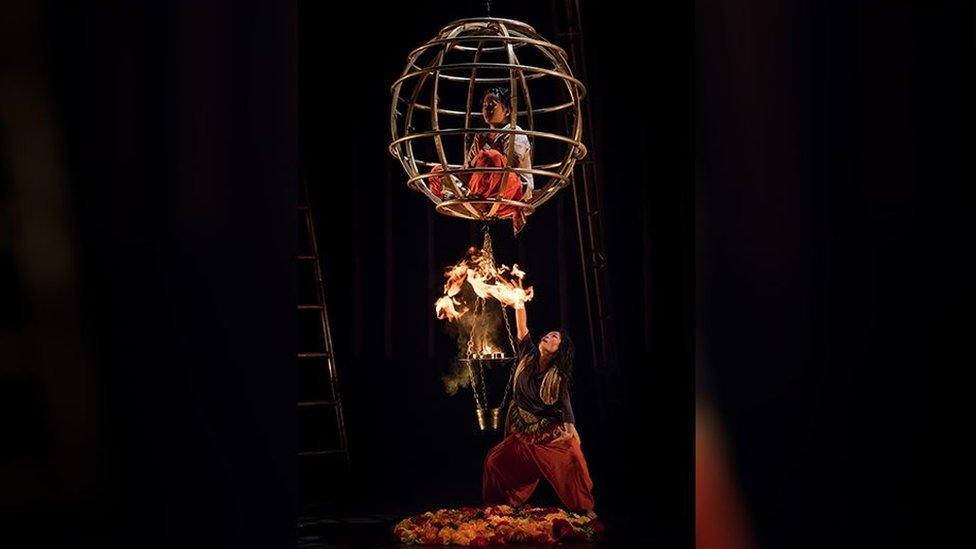
The performance is a fusion of Asian and European circus work
Renu, 25, said: "I was a lost child for many years.
"I was rescued, but sometimes a wall of darkness surrounds me, a wall that I cannot come through, that I am still the lost girl I used to be."
For Renu, her journey into exploitation began when she was six, when she was sold to traffickers by her own mother.
For the next nine years, until her rescue age 15, she was forced to train as an acrobat, working long hours and often going without food.
Aman, 26, too was trafficked into the Great Bombay Circus, where he endured regular beatings.
The friends' suffering would have likely continued were it not for Chora Chori, a UK charity which helps trafficked children.
Spokesperson Shailaja CM, said: "The children who were trafficked to Indian circuses were mostly illiterate.
"Fathers, mothers and relatives were given money by the traffickers and they would take them.
"Some parents didn't know they were selling their children."
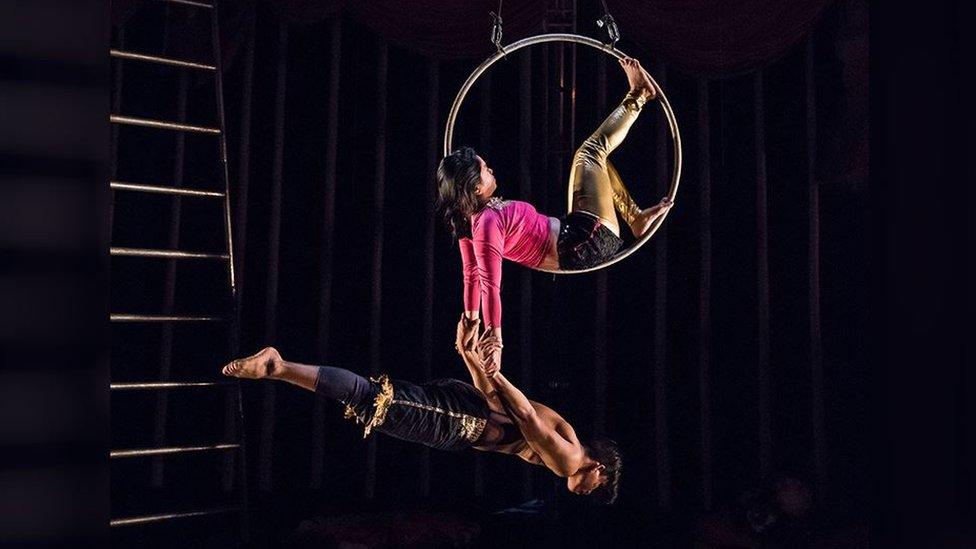
Aman and Renu were forced to train as acrobats after being trafficked from Nepal
Once in the circus, the children faced a life of abuse.
Shailaja CM added: "Most of the circuses we found sexual abuse inside, and also abortions, which they would do by themselves.
"There were beatings, but on the head to leave no mark.
"Most of the children had head injuries, hearing and eye problems."
In 2011, the Indian Supreme Court banned circuses from using child performers and demanded that all remaining children be released.
Once rescued - often in dangerous raids with the help of local authorities - the children were returned to Nepal.
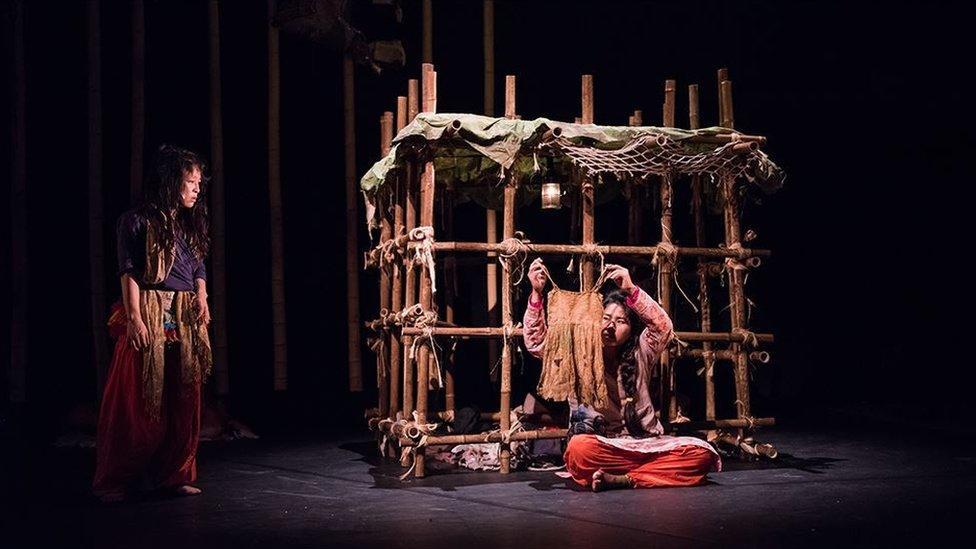
The show tells the story of child slavery in India
But the homecomings were typically hard, with many of the youngsters having no formal education and finding it difficult to secure employment and reintegrate into society.
For Renu and Aman, they joined Circus Kathmandu, a group of 13 young men and women rescued from Indian circuses.The "ethical" circus provides the performers with a salary, enabling them to develop their circus skills while living independent lives.
In 2013, the circus took on a new creative director, Ali Williams, of Cardiff, founder of the No Fit State Circus.
She said: "Some of the kids told me they used to drink the petrol from the fire torches because they were so hungry and this would stop the feeling.
"Another said she broke her arm falling off a trapeze and they didn't take her to a doctor.
"She couldn't do handstands after it because they just bandaged it up and let it heal with no medical treatment.
"One of the girls was 12 years old and forced to marry the circus owner and had three kids by the time she was 14."
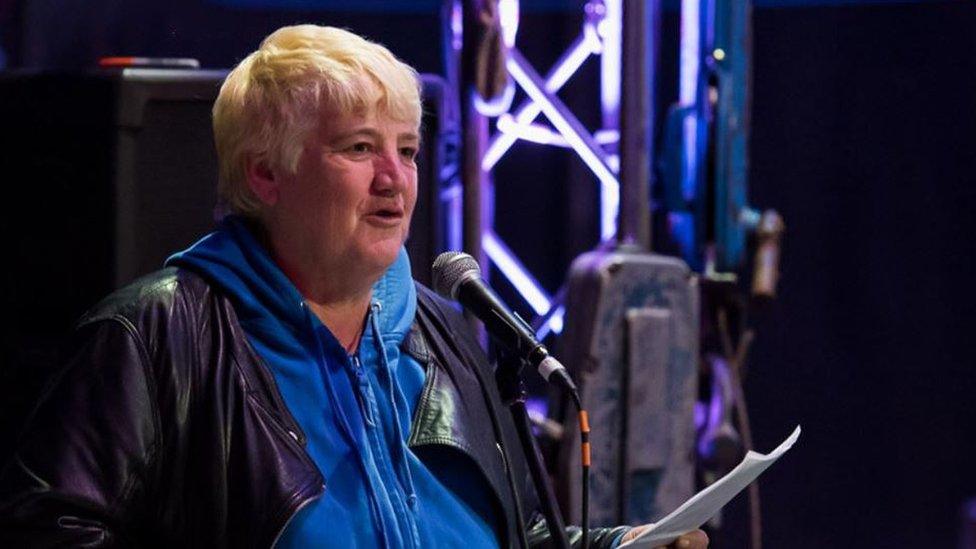
Creative producer Ali Williams took As A Tiger In The Jungle on tour to introduce a wider audience to the stories of child slavery
Inspired by the horrific lives many had endured, Ali decided to put on a touring show in the UK, using Renu and Aman to convey their own story through their art.
She said: "When I first arrived in Kathmandu in 2013, the word 'circus' had a very negative place in these children's lives and I had to try and turn that around.
"I knew I was working with a group of vulnerable adults and they weren't able to be proud of what they were doing.
"But my desire was to get them to understand what contemporary circus is and to be able to earn a living from it."
Talking about the opportunity, Aman said: "It was very tough life so when we got to Nepal we were like 'wow'.
"Sometimes I see myself running through the jungle, forever lost, never to be free.
"But I know we are the lucky ones. We survived and can make money."
In total, roughly 700 children have been rescued or released from circuses in India.
But activists claim that thousands of Nepalese children are still trafficked to India every year, often to work as domestic servants or sex workers.
Shailaja CM added: "Nepalese children can easily be exploited. They cannot complain as they don't know the local language and can't run away anywhere because it's a new place and far away from home."The government should list the areas prone to trafficking and should focus on education and other employment."
Renu and Aman's story is told in As A Tiger In the Jungle, external, currently on tour.
Click here to listen to their full story.
- Published25 May 2019
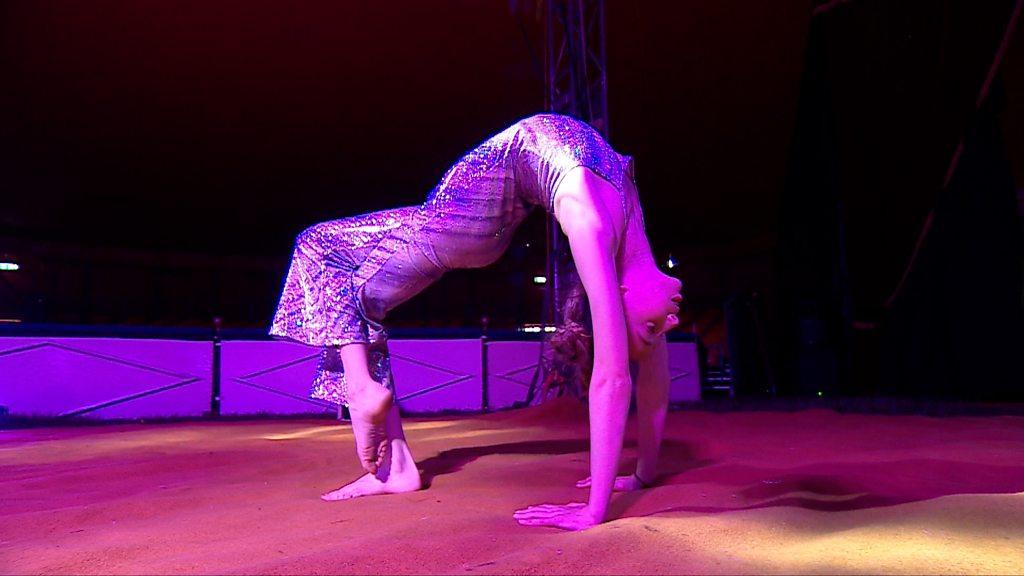
- Published22 December 2018
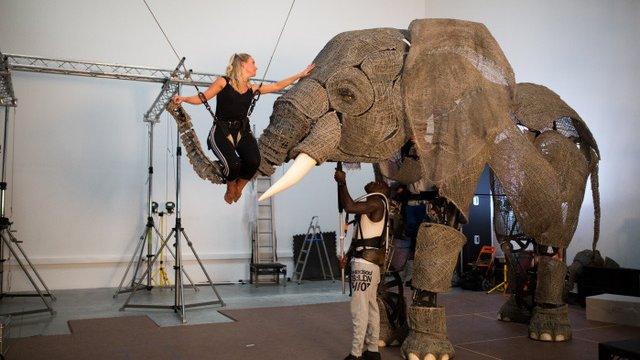
- Published6 June 2019
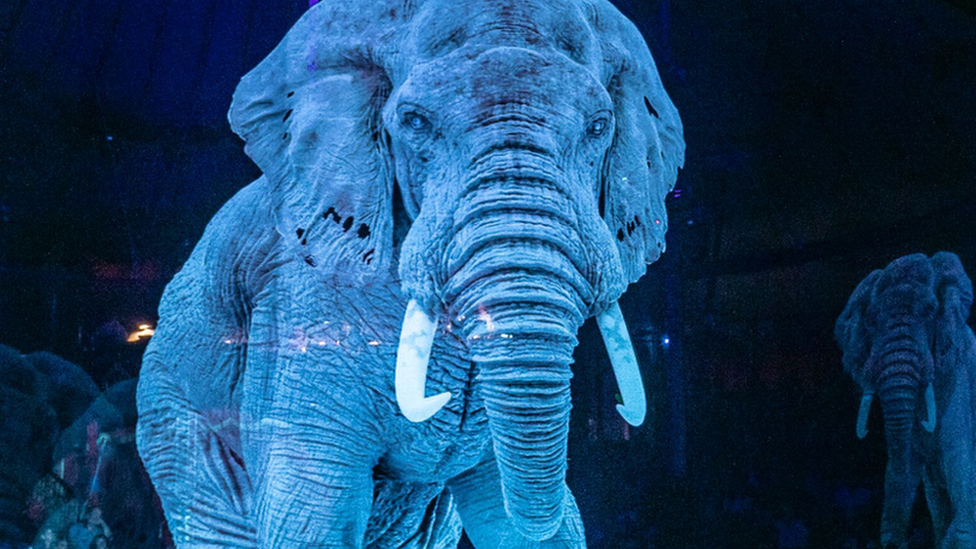
- Published29 July 2017

- Published10 September 2018
